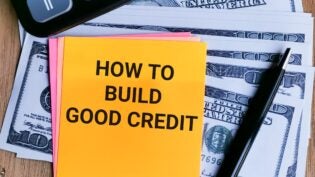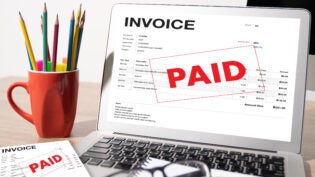
If you’re currently in debt, you might be feeling embarrassed or humiliated about your financial situation. But you shouldn’t be. Save your embarrassment for that 7th grade class picture where you sported headgear. Or that unfortunate summer when you decided to bleach half your hair.
Debt is extremely common and having shame about it is totally unnecessary, not to mention wildly unproductive. Instead of wallowing in the depths of financial despair, you can take proactive steps toward becoming debt-free once and for all.
This article will cover 3 reasons why you shouldn’t be embarrassed about your debt, and you’ll learn concrete ways to make your money woes a thing of the past. Dust off your loan payoff calculator, and get ready to say goodbye to debt and hello to financial freedom.
3 Reasons You Shouldn’t be Embarrassed About Your Debt
1. Feeling embarrassed won’t help you fix your debt
Embarrassment isn’t a particularly productive emotion. Attempting to hide your debt and avoiding it won’t help your financial situation. You can toss your statements in the trash and continue to make minimum payments. You can tell yourself that you haven’t completely maxed out your cards. You can start talking about the weather the moment anyone brings up money and investing. But none of these tactics will help you fix your debt. The only way to start solving your money problems is to start acknowledging them.
2. It isn’t just you
Feeling lost in the throes of financial disaster can feel like a solitary experience. People often share their money success stories but not many talk about how much they owe in debt. Or investments that went wrong. Debt is extremely common. Know that you are far from being alone in what can feel like an isolating experience.
3. It doesn’t have to be permanent
Debt doesn’t have to be a permanent part of your life that defines you. By changing your spending habits, you can change your financial future. Don’t let the spending mistakes of the past affect the rest of your life.
How to get out of debt
Follow these tips to kiss your debt goodbye:
Create a budget
Creating and following a budget can help you avoid unnecessary spending. To create a budget, you should first compare your post-tax income against your monthly expenses. Include both fixed expenses that stay the same every month (like rent), and variable expenses that fluctuate (like groceries). If you find that your spending is outpacing your saving, it’s time to tweak your spending. You can use this VA loan calculator for basic calculations of common loan types. After all, eating takeout five times a week probably isn’t necessary, and maybe the adless Hulu plan isn’t either.
Select a payoff plan
Two popular ways to attack your debt are the avalanche method and the snowball method:
- The debt avalanche method: With the debt avalanche method, you’ll pay off your debt in the order of highest to lowest interest rates. You’ll continue to make minimum payments on all your debts, but extra cash will go toward the debt with the highest interest rate. Once that’s eliminated, you’ll put extra toward the debt with the next highest interest rate. The avalanche method can help you save more money overall since you’ll save on interest over time.
- The debt snowball method: With the debt snowball method, you’ll pay off your debt in order of smallest to largest amounts, regardless of the interest rate. You’ll make minimum payments but put extra money toward the smallest debt. Once that’s paid off, you’ll focus on the second smallest debt. The snowball method is very motivational and can be helpful for those who need a little extra encouragement on their debt payoff journey.
Create an emergency fund
Having an emergency fund in place can help you keep your finances protected from the unexpected, such as emergency medical bills or a car accident. An emergency fund is a pool of money set aside to cover three to six months of living expenses, although a year is preferred. Having an emergency fund can help you avoid falling into debt to pay for rainy day bills.
Debt doesn’t have to be a defining characteristic of your life. You aren’t alone, and by following our debt payoff tips, you’ll be able to channel your shame into action. By building a budget, following a debt payoff plan, and establishing an emergency fund, you’ll be on your way to a debt-free life in no time.
Guest Author: Stefanie Gordon is a content strategist with over a decade of professional writing experience. She is a former financial journalist who has spent the last several years working in digital marketing. She specializes in content strategy and creation for large and small businesses in finance and technology.
2305 Views











